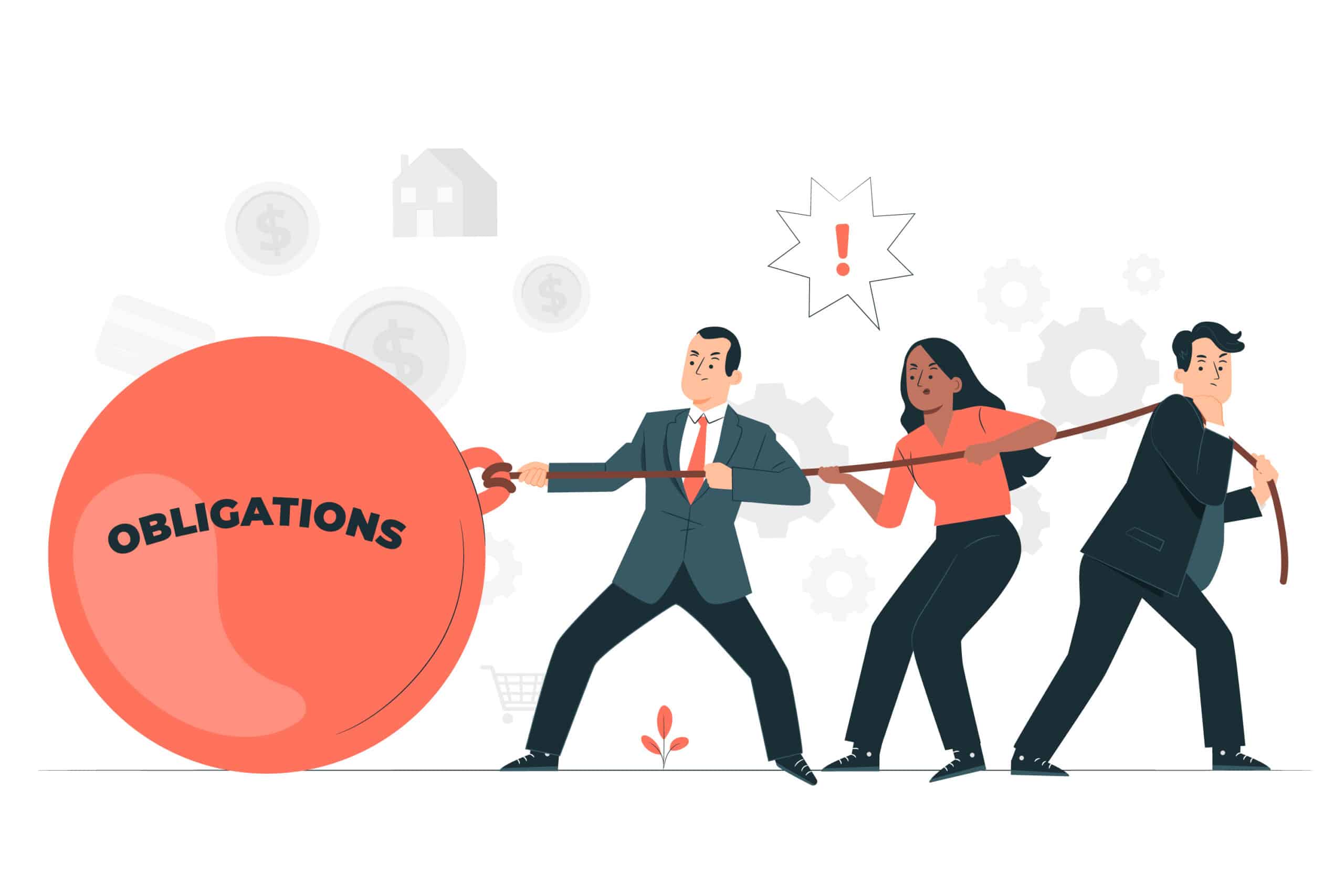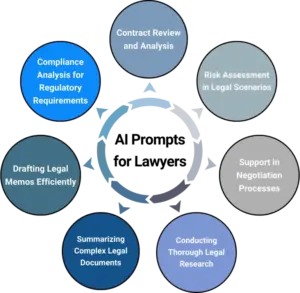Welcome to our comprehensive guide on understanding contractual liability. In business, contracts are super important. They set the rules for how people or companies work together.
So, everyone knows what they need to do, and they do it. However, with contracts come liabilities and responsibilities that need to be carefully understood and managed.
This guide will provide you with a clear understanding of contractual liability and its importance in business law. Okay, we’re going to talk about what you’re supposed to do when you agree to a contract. We’ll cover the different kinds of things you might have to do in a contract and some important stuff to remember about it. Plus, we’ll discuss what might happen if you don’t do what you’re supposed to in a contract, and give you some tips for dealing with it in different businesses.
By the time we’re done, you’ll know all about what you’re responsible for in a contract and how to make sure you’re doing things right to protect your business.
Definition and Importance in Business Law

Contractual liability is a fundamental concept in business law. It refers to the legal responsibility or obligation that a party has to perform certain acts as specified in a contract. In other words, it is the liability that arises from a legally binding agreement between two or more parties.
Contractual liability is really important in business law because it sets the rules for how people and companies work together in contracts. It makes sure that everyone does what they’re supposed to do in the contract. Without contractual liability, parties could easily breach their agreements without any repercussions, leading to chaos and legal disputes.
Contractual liability provides a framework for businesses to operate and engage in transactions with confidence. It allows parties to rely on the promises made in a contract and seek remedies if those promises are not fulfilled.
Contracts also help people and companies manage risks. They can protect you from bad stuff that might happen because of the contract, like losing money or getting in trouble. So, it’s like a safety net to keep you safe from problems.
How Contractual Liabilities Arise in Business Agreements?
Contractual liabilities can arise in various ways in business agreements. When two or more parties enter into a contract, they are bound by the terms and conditions outlined in the contract. These terms and conditions create contractual obligations that each party must fulfill.
Contractual liabilities can arise from the failure to fulfill these obligations. For example, suppose Party A agrees to deliver a product to Party B by a specific date and fails to do so. In that case, they may be liable for any losses or damages suffered by Party B as a result of the delay.
Sometimes, if someone doesn’t follow the rules in a contract, they can be held responsible. For example, if they give bad products or services. In short, if you don’t do what you’re supposed to in a contract, you might have to pay for any problems because of it. Everyone in a contract needs to know what they must do and try to do it right to avoid getting in trouble.
Related Article: What Are Contractual Obligations? Your Master Guide
The Different Types of Contractual Liability

Contract responsibilities can change based on what kind of contract it is and what the people involved agree to do. There are different types of contractual liabilities, each with its characteristics and implications. Understanding these types can help businesses navigate their contractual obligations and ensure legal compliance. In the following sections, we will explore two common types of contractual liabilities: express liabilities and implied liabilities.
Express vs. Implied Liabilities in Contracts
Express liabilities are the things you promise to do in a contract, written out clearly so everyone agrees on them. For instance, if a contract says Party A must deliver something to Party B by a certain day, Party A has to do it – that’s an express liability.
Implied responsibilities aren’t written out in the contract but are understood from the agreement or how both sides act. These duties come from what’s normal in the industry, what people usually do, or what’s fair to expect. For instance, if Party A sells stuff, they’re expected to give goods that work well and are right for what they’re meant for.
Both express and implied liabilities play a crucial role in contractual relationships. Businesses should know about these responsibilities and make sure they do what they promised in contracts to steer clear of legal trouble.
Understanding Indemnity and Hold Harmless Clauses
Indemnity and hold harmless clauses are common provisions in contracts that help parties manage their contractual liabilities. These clauses allocate the responsibility for potential losses or damages to one party, relieving the other party of liability.
An indemnity agreement is like a promise in a contract. It says that if one person causes harm or financial loss to another person because of the contract, they have to make it right by paying them back. So, if one person messes up and causes problems for the other person, they’re responsible for fixing it.
A hold harmless agreement is when one party promises to keep the other party safe from any trouble that might come up because of the contract. So, if Party A gets blamed for something in the contract, Party B will take the blame instead and make sure Party A doesn’t have to deal with any money or legal problems.
Indemnity and hold harmless clauses are important tools for managing contractual liability and transferring risk between parties. These clauses should be carefully negotiated and drafted to ensure that the parties’ interests are properly protected.
Related Article: What Is Contractual Risk? Your Ultimate Guide
Key Considerations in Contractual Obligations and Liabilities

When entering into a contract, it is important for businesses to carefully consider their contractual obligations and liabilities. Understanding the distinction between obligations and liabilities is essential for managing the risks associated with contracts. In this part, we’ll look at how promises in contracts are different from responsibilities and talk about how warranties and guarantees play a part in contracts.
Distinguishing Between Contractual Obligations and Liabilities
Contractual obligations and liabilities are closely related but distinct concepts in contract law. While obligations refer to the duties and responsibilities that each party has agreed to fulfill in a contract, liabilities refer to the legal consequences that arise from a breach of those obligations.
When parties enter into a contract, they are bound by the terms and conditions outlined in the agreement. These terms create contractual obligations that each party must fulfill. Not doing these things they’re supposed to do can cause problems like getting sued, having to pay fines, or the contract is canceled.
Businesses need to distinguish between their contractual obligations and liabilities to effectively manage their contractual relationships. By knowing what they have to do and doing things ahead of time to meet those obligations, businesses can lower the chance of getting into trouble and keep good relationships with the people they’re dealing with.
The Role of Warranties and Guarantees
Warranties and guarantees are common features in contracts that provide additional protection for the parties involved. These provisions offer assurances to the other party regarding the quality, performance, or condition of goods, services, or workmanship.
Warranties are promises about what a product or service will be like, made by one person to another. They assure that the product or service will meet certain standards or perform as expected. If a warranty is breached, the party that made the warranty may be held liable for any resulting damages or losses.
Guarantees are like promises made by someone other than the seller, like the maker of a product or a bank. They give extra assurance that something will happen as expected, and if it doesn’t, they might offer solutions or money to make things right.
Warranties and guarantees play an important role in managing contractual liabilities by providing additional assurances and remedies for the parties involved. Businesses should think carefully about the promises they make or get in contracts to keep themselves safe and handle possible problems.
Related Article: How To Manage Contracts Efficiently: Best Practices
Legal Implications of Breaching Contractual Liability

Breach of contract liability can have significant legal implications for businesses. When someone doesn’t do what they promised in a contract or breaks its rules, it can cause fights in court, money problems, and harm the company’s image. Here, we’ll look at what can be done to fix these problems and see real examples of fights in court over broken promises.
Remedies and Damages for Breach of Contract
When a party breaches its contractual liability, the aggrieved party may seek remedies and damages to compensate for the losses or damages suffered as a result of the breach. There are several remedies available for breach of contract, including:
- Damages: If someone breaks the rules, the person who got hurt can ask for money to make up for what they lost. How much they get depends on how bad the rule-breaking was and how much they lost because of it.
- Specific Performance: Sometimes, the court might tell the party that broke the contract to do what they promised in the first place. This happens when just paying money isn’t enough to fix the problem caused by the breach.
- Rescission: Rescission is a solution that lets the upset party cancel the contract because of a breach. It’s usually used when the breach is really big and ruins what the contract was supposed to do.
Related Article: Breach Of Contract: Master How To Resolve Legal Disputes
Contract Liability Management in Businesses

Managing contractual liabilities is a crucial aspect of running a successful business. By understanding the different strategies and tools available, businesses can effectively manage their contractual obligations and protect themselves from potential liabilities. In this section, we will explore strategies to limit liability exposure and the importance of contractual liability insurance.
Strategies to Limit Liability Exposure
Businesses can implement several strategies to limit their liability exposure in contracts. These strategies include:
- Careful contract drafting: A well-drafted contract with clear and precise terms can help reduce the risk of misunderstandings and disputes. It is important to clearly state the rights, obligations, and liabilities of each party in the contract.
- Indemnification clauses: Including indemnification clauses in contracts can help shift the responsibility for potential losses or damages to another party. These clauses say who has to pay the other if there’s a problem or certain situations happen.
- Limitation of liability clauses: Limitation of liability clauses can set a maximum amount of money that can be asked for if there’s a breach of contract. These clauses can help protect businesses from excessive financial liabilities.
- Risk assessment and mitigation: Doing a careful study of risks and putting plans in place to deal with them can help find possible problems and take steps to lower them before they become big issues. This may include implementing safety protocols, conducting regular inspections, or obtaining insurance coverage.
The Importance of Contractual Liability Insurance
Contractual liability insurance is a specialized form of insurance that provides coverage for potential liabilities arising from contractual obligations. It helps protect businesses from financial losses or damages that may result from a breach of contract or other defined circumstances.
Contractual liability insurance typically covers legal defense costs, settlements, or judgments arising from contractual liabilities. It provides businesses with financial protection and peace of mind, allowing them to focus on their core operations without the fear of incurring significant financial losses in the event of a breach.
Obtaining contractual liability insurance is especially important for businesses that regularly enter into contracts with significant financial or operational risks. It provides an additional layer of protection and can help businesses navigate the complexities of contractual relationships with confidence.
Related Article: How To Manage Contract Risk: A Comprehensive Guide
Contract Liability in Different Industries

Contractual liability is a concept that applies to a wide range of industries. Though the main ideas about who is responsible for contracts stay similar, various industries can have their problems needing specific fixes. Here, we’ll talk about the special issues and fixes in the tech, construction, and service areas. Plus, we’ll look at dealing with laws worldwide when it comes to international contracts.
Unique Challenges and Solutions in Tech, Construction, and Service Sectors
The tech industry, construction companies, and service sectors face unique challenges when it comes to contractual liability. These challenges may include:
- Tech Industry: The tech industry often deals with complex intellectual property issues, data privacy concerns, and rapidly changing technologies. Contractual liability in the tech industry requires careful consideration of these factors to ensure legal compliance and protect intellectual property rights.
- Construction Companies: Construction contracts often involve multiple parties, strict deadlines, and potentially hazardous work environments. Managing contractual liabilities in the construction industry requires clear communication, effective risk management, and compliance with industry regulations.
- Service Sectors: Service-based businesses face unique challenges in delivering intangible services and meeting customer expectations. Contractual liability in the service sector requires clear service level agreements, effective dispute resolution mechanisms, and strategies to manage client expectations.
International Contracts: Navigating Global Legal Systems
International contracts introduce additional complexities when it comes to contractual liability. Navigating global legal systems, different jurisdictions, and diverse cultural norms requires a thorough understanding of international contract law and the availability of legal services in different countries.
- Choice of law and jurisdiction: Saying what laws apply and where any legal disputes will be settled in the contract can help prevent arguments and make sure everyone follows the rules we agreed to.
- Legal services: Getting help from lawyers who know a lot about international contracts can make it easier for businesses to deal with different laws around the world and follow all the rules.
- Cultural considerations: Cultural norms and practices can significantly impact contractual relationships. Businesses should be mindful of cultural differences and adapt their contractual obligations and liabilities accordingly.
Related Article: How to choose the right CLM software
FAQs
What Constitutes a Breach of Contractual Liability?
A breach of contractual liability occurs when a party fails to fulfill its obligations as specified in the contract. This can include non-performance, late performance, or substandard performance of the agreed-upon terms.
Can Contractual Liabilities be Transferred to Another Party?
Yes, when it comes to contracts, if one party doesn’t want to be responsible for something bad that might happen, they can make a deal with the other party. This deal says that if something goes wrong, one party will take the blame and pay for it, so the other party doesn’t have to worry about it.
How Do Amendments Impact Existing Contractual Liabilities?
Changes to a contract, called amendments, can affect what people have to do under the contract. It’s crucial to check and change the contract correctly to make sure these changes deal with what everyone has to do.
Conclusion
In conclusion, contractual liability plays a pivotal role in business agreements and legal frameworks. Understanding the fundamentals, types, and legal implications is essential for safeguarding business interests. Businesses must diligently manage contractual obligations to mitigate risks and ensure compliance.
Contractual liability insurance can give you more protection. In different industries like technology and construction, dealing with contract responsibilities needs specific plans. By understanding the details of contract responsibilities and getting help from experts, businesses can deal with problems early and keep contracts strong. Learning about the legal side and being careful about risks can make your business stronger when it comes to contracts.





